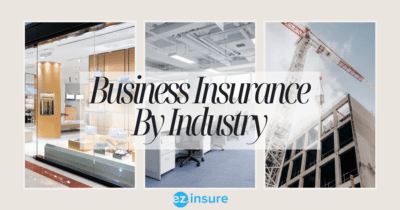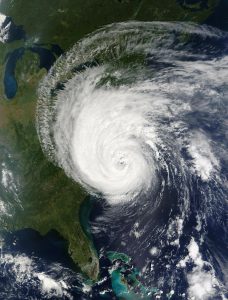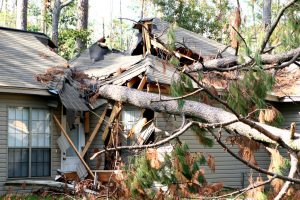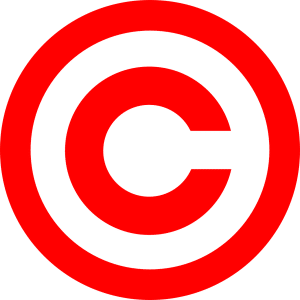
Types Of Business Insurance
Before we go over what types of insurance different industries need. Let’s look at the different types of business insurance policies available.
General Liability Insurance
General liability insurance is a fundamental type of business insurance. It provides coverage for a range of common risks and liabilities faced by businesses. Also known as commercial general liability (CGL) insurance. It is designed to protect businesses from financial losses associated with third-party claims of bodily injury, property damage, and personal injury. General liability typically covers:
Bodily Injury
Bodily injury coverage helps protect your business in the event that someone is injured on your premises or as a result of your business operations. This coverage can help pay for medical expenses, and legal fees. As well as any potential settlements or judgments if your business is found liable for the injury.
Property Damage
Property damage coverage provides protection if your business causes damage to someone else’s property. This could include damage to a client’s home or office space. Or damage to other physical assets belonging to third parties.
Personal and Advertising Injury
Personal and advertising injury coverage is designed to protect against non-physical injuries, such as libel, slander, or infringement of copyright. If your business is accused of damaging another party’s reputation through advertising or other communications, this coverage can help cover legal costs.
Legal Defense
General liability insurance typically covers the costs of legal defense, including attorney fees, court expenses, and settlements or judgments. This is crucial for businesses facing lawsuits, even if the claims are ultimately determined to be groundless.
Product and Completed Operations
If your business manufactures, sells, or distributes products, or if you provide services, products and completed operations coverage can protect against claims arising from defects in products or services that cause bodily injury or property damage.
Medical Payments
Medical payments coverage helps pay for medical expenses if someone is injured on your premises. Regardless of who is at fault. This coverage is usually more limited than bodily injury coverage, but can provide swift reimbursement for minor injuries without the need for a lawsuit.
Business Property Insurance
Business property insurance, also known as commercial property insurance, is a type of insurance coverage that protects a business’s physical assets. Including buildings, equipment, inventory, furniture, and other property, against various risks and perils. This insurance is crucial for businesses to recover from financial losses that may result from damage or loss of property due to covered events. The key coverage of business property insurance are:
- Physical Assets – Business property insurance provides coverage for the physical assets owned or leased by a business. This includes the building itself, if applicable, as well as contents such as inventory, equipment, furniture, fixtures, and signage.
- Covered Perils – Policies typically specify the perils or events that are covered. Common covered perils include fire, theft, vandalism, windstorms, hail, explosions, and certain types of water damage. It’s important for businesses to carefully review and understand the specific perils covered by their policy.
- Business Interruption – Many business property insurance policies include business interruption coverage. This component helps businesses recover lost income. And cover ongoing expenses if the business is temporarily unable to operate due to a covered event, such as a fire or natural disaster. It can include coverage for rental income, payroll, and other fixed costs.
- Replacement Cost – Business property insurance policies may offer coverage based on either replacement cost or actual cash value. Replacement cost coverage reimburses the cost to replace or repair damaged property without deducting for depreciation, providing a more comprehensive form of coverage. Actual cash value coverage considers depreciation, resulting in a lower reimbursement amount.
Cyber Liability Insurance
Cyber liability insurance is a type of insurance coverage designed to protect businesses from financial losses and liabilities associated with cyber-related risks and events. As businesses increasingly rely on technology and digital assets. The exposure to cyber threats such as data breaches, hacking, and other cybercrimes has become a significant concern. Cyber liability insurance helps businesses mitigate the financial impact of these risks by providing coverage for various expenses and liabilities.
- Data Breach Response – Coverage for expenses related to responding to a data breach. This may include the costs of notifying affected individuals, providing credit monitoring services, and managing public relations efforts to minimize reputational damage.
- Legal and Regulatory Expenses – Protection against legal costs and regulatory fines that may result from a data breach or other cyber incident. Cyber liability insurance can cover the expenses associated with legal defense, investigations, and compliance with data breach notification laws.
- Data Restoration – Coverage for the costs of restoring or recreating lost or damaged data as a result of a cyber incident. This may include expenses related to data recovery and reconstruction efforts.
- Business Interruption – Compensation for financial losses resulting from a cyber incident that disrupts business operations. This coverage can help replace lost income and cover ongoing expenses during the period when the business is unable to operate normally.
- Cyber Extortion – Protection against costs associated with cyber extortion attempts, such as ransomware attacks. This coverage may include payments made to cybercriminals to restore access to data or systems. As well as expenses related to negotiating with extortionists.
- Forensic Investigations – Reimbursement for the costs of investigating a cyber incident to determine the extent of the breach, identify the source of the attack, and implement measures to prevent future incidents.
Professional Liability Insurance
Professional liability insurance, also known as errors and omissions (E&O) insurance, is a type of insurance coverage designed to protect professionals and businesses that provide professional services from claims of negligence, errors, or omissions in the course of their work. This insurance is particularly relevant for individuals and companies in service-based industries where clients rely on their expertise and advice.
- Professional Negligence – Coverage for claims arising from alleged professional negligence, errors, or mistakes in the performance of professional services. This can include errors in judgment, faulty advice, or failure to meet the standard of care expected in the industry.
- Legal Defense Costs – Reimbursement for legal expenses associated with defending against claims of professional negligence. This can include attorney fees, court costs, and settlements or judgments resulting from lawsuits.
- Breach of Duty – Coverage for claims related to a breach of professional duty. This could involve a failure to perform services as promised, failure to meet contractual obligations, or other breaches of professional duty.
- Defamation – Protection against claims of defamation, libel, or slander arising from the provision of professional services. This coverage can address legal costs and settlements associated with damage to a person’s reputation.
- Copyright Infringement – Coverage for claims of copyright infringement related to the creation or dissemination of professional work. This is particularly important for professionals in creative industries where intellectual property is a significant concern.
Workers’ Compensation Insurance
Workers’ compensation insurance, commonly referred to as workers’ comp, is a type of insurance that provides financial and medical benefits to employees who suffer job-related injuries or illnesses. It is a crucial component of the social safety net and is designed to protect both employees and employers. It helps injured or ill employees by providing coverage for medical expenses, rehabilitation costs, and a portion of lost wages. At the same time, it protects employers from lawsuits related to workplace injuries.
- Medical Benefits – Workers’ compensation insurance covers the costs associated with medical treatment and care for work-related injuries or illnesses. This includes doctor visits, hospital stays, surgeries, medications, rehabilitation, and other necessary medical services.
- Income Replacement – If an employee is unable to work due to a work-related injury or illness, workers’ compensation provides partial wage replacement. Typically, a percentage of the employee’s pre-injury wages is paid to help cover living expenses during the period of disability.
- Disability Benefits – Disability benefits are provided to employees who experience a temporary or permanent disability as a result of a work-related injury or illness. The level of disability benefits is determined by the severity and nature of the disability.
- Death Benefits – In the unfortunate event of a fatal workplace injury or illness, workers’ compensation insurance provides death benefits to the surviving dependents of the deceased employee. This includes compensation for funeral expenses and financial support for the dependents.
Business Interruption Insurance
Business interruption insurance, also known as business income insurance, is a type of insurance coverage that provides financial protection to businesses in the event of a covered loss that disrupts their normal operations. This coverage is designed to help businesses recover from the financial impact of a temporary suspension of operations due to covered perils, allowing them to maintain financial stability during a challenging period.
- Income Loss – Business interruption insurance covers the loss of income that a business may experience due to a covered event, such as a fire, natural disaster, or other insured peril. This coverage extends to the profits that would have been earned during the period of interruption.
- Fixed Costs – In addition to income loss, the policy typically covers certain fixed costs that continue even when operations are temporarily halted. This can include rent or mortgage payments, utilities, and certain other ongoing expenses necessary for the business to resume normal operations.
- Covered Perils – Business interruption insurance is triggered by specific perils or events that are covered by the policy. Common covered perils include fires, natural disasters, vandalism, and other events as outlined in the insurance contract. It’s important for businesses to understand the perils covered and, if needed, consider additional endorsements for specific risks.
Product Liability Insurance
Product liability insurance is a type of insurance coverage designed to protect businesses from financial losses and legal liabilities arising from claims related to defects or problems with products they manufacture, distribute, or sell. This insurance is crucial for businesses involved in the production and sale of goods, as it helps mitigate the financial impact of legal expenses, settlements, or judgments resulting from product-related claims.
- Bodily Injury and Property Damage – Product liability insurance provides coverage for claims related to bodily injury or property damage caused by a defect in a product. If a product is found to be defective and causes harm to a consumer or their property, the insurance can help cover the associated medical expenses, repair costs, or legal fees.
- Legal Defense – One of the primary benefits of product liability insurance is the coverage for legal defense costs. If a business faces a lawsuit related to a defective product, the insurance will typically cover the expenses associated with hiring attorneys, court fees, and other legal costs.
- Manufacturing or Design Defects – Product liability insurance typically covers claims arising from both manufacturing defects and design defects. Manufacturing defects occur during the production process, while design defects are inherent flaws in the product’s design that make it unreasonably dangerous.
Employment Practices Liability Insurance (EPLI)
EPLI is a type of insurance coverage designed to protect businesses and employers from the financial consequences of employment-related lawsuits. These lawsuits can arise from various employment-related issues, such as wrongful termination, discrimination, harassment, retaliation, and other violations of employment laws. EPLI provides coverage for legal defense costs, settlements, and judgments associated with such claims.
- Wrongful termination claims – Protection against claims of wrongful termination or dismissal, where an employee alleges that their termination violated employment contracts, implied contracts, or anti-discrimination laws.
- Discrimination claims – Coverage for claims of discrimination based on factors such as age, gender, race, religion, disability, or other protected characteristics. EPLI helps businesses address allegations of discriminatory practices in hiring, promotions, and other employment decisions.
- Harassment claims – Protection against claims of workplace harassment, including sexual harassment or other forms of harassment that create a hostile work environment. EPLI assists in covering the costs associated with investigations, legal defense, and potential settlements.
- Third-party liability – Some EPLI policies may provide coverage for claims brought by non-employees, such as clients, customers, or vendors, alleging wrongful employment practices.
Commercial Auto Insurance
Commercial auto insurance is a type of insurance coverage designed to protect businesses and their vehicles used for business purposes. This insurance provides financial protection in the event of accidents, injuries, or property damage involving vehicles owned or operated by a business. Commercial auto insurance is crucial for companies that rely on vehicles for various business activities. Including transportation of goods, services, or employees.
- Business Owned Vehicles – Commercial auto insurance covers vehicles owned or leased by a business and used for business purposes. This can include cars, trucks, vans, and other types of vehicles essential to the business’s operations.
- Liability – Liability coverage is a fundamental component of commercial auto insurance. It provides protection against bodily injury and property damage that the business may be legally responsible for in the event of an accident. This coverage helps pay for medical expenses, repair costs, and legal expenses associated with third-party claims.
- Collision – Collision coverage is designed to cover the cost of repairs to a business-owned vehicle in the event of a collision, regardless of who is at fault. This coverage helps businesses get their vehicles back on the road quickly after an accident.
- Uninsurance/Underinsured Motorist – This coverage protects the business and its drivers in the event of an accident with a driver who either has no insurance or insufficient insurance to cover the damages. Uninsured/underinsured motorist coverage helps bridge the gap in such situations.
Industries
As we said, every industry is different. While most policies can help all of these industries there are certain policies that each industry needs more than the others.
Retail
The retail industry is a dynamic and ever-evolving sector that thrives on customer interactions, sales, and the management of diverse inventory. Amidst the excitement of running a retail business, it’s crucial for owners to prioritize risk management by investing in the right insurance policies. From protecting against potential liabilities to mitigating financial losses. A tailored insurance strategy can be the key to long-term success in the retail landscape. Retail companies typically need:
- General liability insurance.
- Commercial property insurance.
- Workers compensation insurance.
- Business interruption insurance.
- Product liability insurance.
- Cyber liability insurance.
Professional Offices
The professional office industry is a diverse and dynamic sector encompassing various professions. From legal and accounting services to consulting and creative endeavors. Amid the hustle and bustle of daily operations, it’s paramount for professionals in this industry to prioritize risk management by investing in the right insurance policies. From protecting against potential liabilities to mitigating financial losses, a well-tailored insurance strategy is crucial for ensuring the sustained success of professional offices. These types of companies need:
- Professional liability insurance.
- General liability insurance.
- Cyber liability.
- Business property insurance.
- Workers’ compensation insurance.
- Employment practices liability insurance (EPLI).
Construction
The construction industry is a powerhouse of growth and development, transforming blueprints into structures that shape communities. Amid the dynamism and innovation, construction businesses face a myriad of risks that can impact projects, finances, and reputations. To safeguard against unforeseen challenges, it’s crucial for construction companies to have a robust portfolio of business insurances. From protecting against accidents on the job site to addressing potential legal liabilities, the right insurance coverage is the cornerstone of a successful construction business.
- General liability.
- Commercial property.
- Workers’ compensation.
- Professional liability.
- Commercial auto.
Food Service
The food service industry is a vibrant and dynamic sector, offering a myriad of culinary delights to consumers worldwide. While chefs and restaurateurs focus on creating exceptional dining experiences. It’s equally crucial for businesses in the food service industry to prioritize risk management through comprehensive business insurance. From protecting against liability claims to ensuring the safety of employees and patrons. The right insurance coverage is the key ingredient for sustained success in the food service realm.
- General liability insurance.
- Commercial property insurance.
- Business interruption insurance.
- Product liability insurance.
- EPLI
Working With EZ
In every industry, the importance of business insurance cannot be overstated. These policies act as a safety net. Providing financial protection and peace of mind as you navigate the challenges of running a business. Whether you’re in retail, technology, construction, healthcare, or any other industry. Understanding your unique risks and securing the appropriate insurance coverage is a proactive step toward building a successful business. Consult with insurance professionals to tailor a policy that suits your specific needs. Ensuring that your business is well-prepared for whatever the future may hold.
No matter what type of business insurance you need, EZ can help. Our agents work with the top insurance companies nationwide to make sure you find the best insurance for your business. In fact, we can save you hundreds of dollars a year by working with your budget to find you the best coverage. If you have questions, feel free to give us a call at 877-670-3538 or enter your zipcode into the box below for free instant quotes.




